In this guide from the Great Western Recycling team, we discuss dry mixed recycling, explaining what it is, what can and can’t go in DMR containers, and the benefits it provides.
What is Dry Mixed Recycling & How Does it Work?
Dry mixed recycling (DMR) refers to a simple but effective waste disposal service that enables businesses to dispose of clean and uncontaminated recyclable materials.
Some businesses throw all their rubbish into the same bin. The problem with this, however, is that recyclable waste can be contaminated by other materials – such as food waste – thus making the previously recyclable materials non-recyclable.
DMR ensures that recyclable waste is kept apart from non-recyclable waste. Rather than throwing all rubbish into one bin, businesses are provided with a dedicated DMR container where all DMR materials the business produces can be disposed of. Businesses don’t have to separate the DMR contents themselves, instead, a waste management company collects the filled container and delivers it to a state-of-the-art recovery facility where the individual materials are sorted for recycling.
DMR is most commonly used by businesses that produce significant waste, like shops and restaurants, but can also be used by other businesses and even domestic homes.
What Can Go in Dry Mixed Recycling?
Clean, dry and uncontaminated materials are accepted in DMR containers. This includes:
- Paper – such as newspapers, magazines and office paper
- Cardboard – such as cereal boxes, cups and corrugated cardboard
- Metal cans – such as clean and empty food tins and drink cans
- Plastic – such as empty drinks bottles, packaging films and tubs and trays
All of the above can be disposed of in the same DMR bin – each type of waste does not need its own container.
What Can’t Go in Dry Mixed Recycling?
Any waste that is dirty or stained is a contaminant to DMR and therefore cannot be disposed of in these containers. This includes:
- Food waste and liquids
- Crisp packets and any other packaging with foil
- Bubble wrap, cling film and polystyrene
- Electrical items – such as batteries
- Waxed paper cups
- Glass and ceramics
- Wood
- Textiles and clothing
- Containers with any residue of food or hazardous material – such as paint tins or bleach bottles
- Sanitary waste
- Black bags and carrier bags
DMR Containers
A number of different container options and sizes are available for DMR.
Two of the most popular containers include front-end loaders (FEL) and rear-end loaders (REL). These large bins are available in 6/8/10-yard sizes and are ideal for businesses that produce large volumes of waste and recycling.
For businesses that don’t produce as much waste or where space for storage is limited, wheelie bins or bags can be provided.
Collection can be as frequent as is necessary.
Benefits of Dry Mixed Recycling
There are many benefits to DMR…
Recycling is Made Easy
Recycling is made easy as you’re able to place all recyclable materials together. You’re not required to spend time and effort sorting waste into different categories.
Save Space
You save space at your business premises as only one container is needed for all recyclable products.
Reduce Costs
DMR is considerably cheaper than a general waste collection.
Impress Prospective Clients and Customers
People like to buy from companies that are environmentally friendly.
General Recycling Benefits
Recycling provides a whole host of benefits. Some of these include:
- Conserve natural resources – the world’s natural resources are not endless. By recycling existing materials, fewer natural resources are needed to create new products.
- Less waste goes to landfill – the more waste that is recycled, the less goes to landfill. Landfill sites are known to cause a wide range of environmental and health issues so should be avoided as much as possible.
- Protect ecosystems and wildlife – recycling reduces the demand to grow and extract raw materials, which can be disruptive to wildlife, forests and ecosystems.
- Saves energy – making products from recycled materials uses less energy than making products from new materials.
DMR Cost
For the best and most accurate DMR costs, it’s advised that you get a quote from our experienced team of recycling specialists. The cost will vary depending on the volume of waste you produce, the type of waste you produce, the size of the container you require, how often you require the collection and so on.
Our experts will take into consideration all the essential information to ensure you receive a competitive price. We have over 35 years of experience in waste management and recycling across the UK and are committed to helping businesses in all sectors become environmentally friendly.
DMR with Great Western Recycling
We hope this guide has provided you with some useful information on the topic of dry-mixed recycling.
Here at Great Western Recycling, we offer a comprehensive and bespoke DMR service to businesses across the UK. Whether you require one-off collections or regular services, we can provide a tailored solution that is designed to meet your specific needs.
Contact our team today to discuss your requirements or to receive a free, no-obligation quote.
Find out more about Great Western Recycling >
See more: What is Zero to Landfill?
